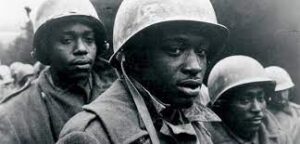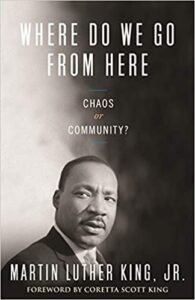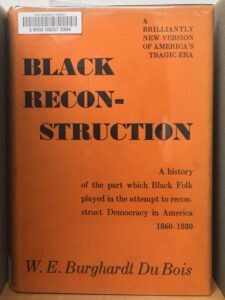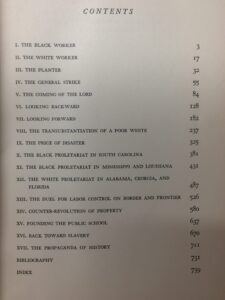Timothy Snyder
Sacrifice. 🕊
May 31, 2021Memorial Day 2021
‘Lasting peace requires its active and systematized cultivation at every level of government and society.’
-Marianne Williamson
Thinking today of the Black Americans who returned from WW’s I and II only to be met with deeper segregation, violence and lynchings. -dayle
EJI
[EQUAL JUSTICE INITIATIVE]
Targeting Black Veterans
Lynching in America
Inspired to defend their country and pursue greater opportunity, African Americans have served in the U.S. military for generations. But instead of being treated as equal members of society upon their return from military service, thousands of Black veterans were accosted, attacked, or lynched between the end of the Civil War and the post-World War II era.
During the late 19th and early 20th centuries, white supremacy remained law and custom throughout the nation, and many whites feared that Black soldiers who had experienced the pride of military service would resist the disenfranchisement, segregation, and second-class citizenship that still characterized the African American experience. In August 1917, U.S. Senator James Vardaman of Mississippi warned that, once a Black soldier was allowed to see himself as an American hero, it would be “but a short step to the conclusion that his political rights must be respected.” Bringing Black soldiers home to the South with expectations of equality, he predicted, would “inevitably lead to disaster.”
~
From professor and author Timothy Snyder:
“This one, from Polish, is about trauma, so I thought it might be fitting for May 31st, which in the United States is Memorial Day.”
‘After the Storm’ by Maria Konopnicka, from 1902.
[“The titular storm is never actually described. It is between the stanzas, in the past.”]
Oh lord, who grants to his world the rainbow
Who lifts to bent flowers a cup from below
Who unfolds the wings of the chick in the nest
Who purples the clouds that escape to the west
By morning the village is free from all care
Here an apple tree’s tended, a roof repaired there
And ere the young dawn can cast its first light
The good country folk have forgotten their fright
Oh lord, who every last trace of discord
Erases from earth by a merciful word
And stills forest’s fierce cry and ocean’s low moan
In the all-quiet heavens where you have your throne
Yet to the wrecked human heart, shattered by storm
Instead of the peace of the spectrum’s calm glow
You give endless thunder without sound or form
Echoes of storms past, memory’s woe.
Konopnicka is out of fashion now, even in Poland. The painting by Józef Chełmoński, of the same era (1896), reminds us of the sensibility.
“There is something sharp here: the confession in the last stanza. Her brave point is that a conceit of art, that nature expresses the soul, that outer appearances reveal inner experiences, is false. A storm means one thing in nature, and another inside a person.
So this is a poem about trauma that acknowledges God, but as something other than consolation. God and nature are on one side, and the person is on the other. The poem is not hopeless, though: by placing her predicament beyond God and nature, Konopnicka is taking responsibility for defining it herself. She does so, I think, rather beautifully.”
[Posted on Twitter by Jonathan Reiner: “Omaha Beach Saint-Laurent-sur-Mer, France.”]
Chaos or Community?
January 9, 2021Martin Luther King asked us this question in 1967, not long before his assassination. After witnessing January 6th, we ask again. We are in a pivotal moment, again, in this country, and now, exacerbating the civil unrest, is a radicalized population with instantaneous virtual connection and unmitigated amounts of disinformation and conspiracy. For those engaged in the disinformation exchange, these are not theories, it is reality.
Social media platforms are suspending, and they’re too late.
Whistleblower Christopher Wylie (think Cambridge Analytica and pink hair):
Platforms like Facebook have been responsible for digitally segregating Americans for years. To move forward, we need to apply de-segregation principles to social media. That starts with regulating Facebook’s underlying digital architecture and design.
Truly, though, does anyone see them doing this anytime soon? No. Profit and power is their mantra.
A recommended read essay from author, and Yale history professor Timothy Snyder. His book, On Tyranny [2017], needs to be on your bookshelf.
Here’s the link to his essay published today in The New York Times Magazine.
https://www.nytimes.com/2021/01/09/magazine/trump-coup.html?smid=tw-share
Post-truth is pre-fascism, and Trump has been our post-truth president. When we give up on truth, we concede power to those with the wealth and charisma to create spectacle in its place. Without agreement about some basic facts, citizens cannot form the civil society that would allow them to defend themselves. If we lose the institutions that produce facts that are pertinent to us, then we tend to wallow in attractive abstractions and fictions. Truth defends itself particularly poorly when there is not very much of it around, and the era of Trump — like the era of Vladimir Putin in Russia — is one of the decline of local news. Social media is no substitute: It supercharges the mental habits by which we seek emotional stimulation and comfort, which means losing the distinction between what feels true and what actually is true.
[…]
My own view is that greater knowledge of the past, fascist or otherwise, allows us to notice and conceptualize elements of the present that we might otherwise disregard and to think more broadly about future possibilities. It was clear to me in October that Trump’s behavior presaged a coup, and I said so in print; this is not because the present repeats the past, but because the past enlightens the present.
Thanks to technological capacity and personal talent, Donald Trump lied at a pace perhaps unmatched by any other leader in history.
[…]
When Senator Ted Cruz announced his intention to challenge the Electoral College vote, he invoked the Compromise of 1877, which resolved the presidential election of 1876. Commentators pointed out that this was no relevant precedent, since back then there really were serious voter irregularities and there really was a stalemate in Congress. For African-Americans, however, the seemingly gratuitous reference led somewhere else. The Compromise of 1877 — in which Rutherford B. Hayes would have the presidency, provided that he withdrew federal power from the South — was the very arrangement whereby African-Americans were driven from voting booths for the better part of a century. It was effectively the end of Reconstruction, the beginning of segregation, legal discrimination and Jim Crow. It is the original sin of American history in the post-slavery era, our closest brush with fascism so far.
If the reference seemed distant when Ted Cruz and 10 senatorial colleagues released their statement on Jan. 2, it was brought very close four days later, when Confederate flags were paraded through the Capitol.
W.E.B. Du Boise, 1st edition, 1935, Beinecke Library:
The lie outlasts the liar. The idea that Germany lost the First World War in 1918 because of a Jewish “stab in the back” was 15 years old when Hitler came to power. How will Trump’s myth of victimhood function in American life 15 years from now? And to whose benefit?
[…]
If Trump remains present in American political life, he will surely repeat his big lie incessantly.
[…]
America will not survive the big lie just because a liar is separated from power. It will need a thoughtful repluralization of media and a commitment to facts as a public good.
From journalist Maria Ressa:
What happened Jan 6 in the US is a logical consequence of the radicalization, the “seeding & spread of conspiracy theories enabled by social media. It’s time to demand accountability. (Facebook is a behavior modification system.)”
Washington Post
A radicalized Air Force vet, Obama supporter, “and after years of personal travails, Ashli Babbitt believed she had found a cause that gave her life purpose. Within hours, that cause would bring her life to a violent end.”
https://www.washingtonpost.com/dc-md-va/2021/01/09/ashli-babbitt-capitol-shooting-trump-qanon/
ProPublica:
‘Some far-right activists are already calling for retribution over the death of Ashli Babbitt. “We’re not putting up with this tyrannical rule. We will return on Jan 19th, carrying our weapons in numbers that no standing army or police agency can match.”
https://www.propublica.org/article/several-well-known-hate-groups-identified-at-capitol-riot
From Jane Mayer at The New Yorker:
Bobby Pickles, a purveyor of far-right T-shirts, joined the horde of balding dudes in dad jeans at the Capitol, because Donald Trump, he says, is “like punk rock.”
He explained that after his father died, in 2015, he sought out new male camaraderie. The Proud Boys filled a vacuum. He claims to have joined not because they are a hate group (as designated by the Southern Poverty Law Center) but because “they were seeking something.” He said, “I came to the realization that Trump was awesome, and that I had been brainwashed.” From right-wing podcasts and YouTube, he said, he has learned that “the pandemic is a scam,” and that “we live in an inverted dictatorship run by the Deep State and globalists.”
“We couldn’t really see the President, we were listening on our phones & when we heard him say, ‘Go to the Capitol,’ we all were, like, ‘Yeah!’ So directed, Pickles & his group began marching. “Things are escalating. I hate to see what happens next.”
https://www.newyorker.com/magazine/2021/01/18/a-palm-beach-proud-boy-at-the-putsch
The Guardian
From Sadiq Khan, the mayor of London:
The storming of the Capitol in Washington is a wake-up call for states around the world, writes the mayor of London
he events at the Capitol building in Washington were shocking, but sadly not that surprising. Yes, President Donald Trump incited a fascist mob to try to violently overthrow the legitimate outcome of a democratic election – but this was the tragic yet inevitable consequence of the far-right movement the president has built and fostered over the last five years.
Trump pitted his own citizens against each other. He preyed on genuine economic suffering. He lied to stoke fear of those who are different. He denied basic scientific facts about Covid-19 and refused to act to save lives and jobs. He separated children from their parents. He used people’s religion as a reason to ban them from coming to the US. He gave equivalence to far-right racists and anti-racist protesters. He denigrated women and denied many the right to choose what they do with their body.
And he also undermined and delegitimised the fundamental pillars of democracy – equality under the law, the freedom of the press, an independent judicial system and, ultimately, even elections themselves.
ragically, the warnings were deliberately ignored by too many supposedly mainstream politicians, commentators and observers around the world, including here in the UK. Some greedily eyed an opportunity for their own advancement, which they valued more than the long-term health of democracy. Others were simply too scared of the consequences of doing the right thing and challenging the ugly new populist and nativist political movements that Trump spawned.
Donald Trump’s defeat is not the end of his brand of far-right politics. More than 74 million voted for him in November. Viktor Orbán in Hungary, Jair Bolsonaro in Brazil, Recep Tayyip Erdoğan in Turkey, Matteo Salvini in Italy, Andrzej Duda in Poland and others are from the same mould. As are a growing group on the fringes of the Brexit movement.
People on both the left and right must show no hesitation in challenging racism and discrimination, be fearless in speaking up to protect all minority groups while promoting equality and focus relentlessly on tackling the economic inequalities and lack of opportunities that create a fertile breeding ground for the far-right – challenges that will only get harder after the pandemic.
We should tell truly inclusive patriotic stories about our national identity that show the genuine diversity of both our history and modern societies. And we need to be clear that compromising with those on the other side of the political aisle is not always a bad thing. Sometimes it is essential for the health of democracy.
Full piece:
Love is Everywhere banners placed in Downtown Boise, Idaho.
The Guardian also published an opinion piece by Daniel Ellsberg. It’s important read, especially if Donald Trump is allowed to stay in office prior to Joe Biden’s inauguration.
“I will always regret that I did not do more to stop war with Vietnam. Now, I am calling on whistleblowers to step up and expose Trump’s plans.”
Daniel Ellsberg was the whistleblower who leaked the Pentagon Papers, which revealed the US government had lied to the American public about the Vietnam war.
resident Trump’s incitement of criminal mob violence and occupation of the Capitol makes clear there is no limitation whatever on the abuse of power he may commit in the next two weeks he remains in office. Outrageous as his incendiary performance was on Wednesday, I fear he may incite something far more dangerous in the next few days: his long-desired war with Iran.
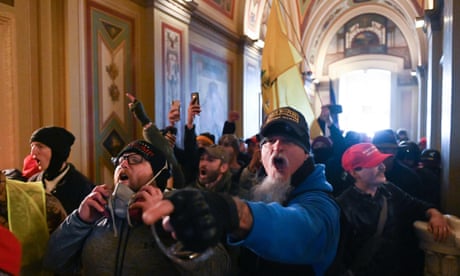
Could he possibly be so delusional as to imagine that such a war would be in the interests of the nation or region or even his own short-term interests? His behavior and evident state of mind this week and over the last two months answers that question.
The dispatch this week of B-52’s nonstop round-trip from North Dakota to the Iranian coast – the fourth such flight in seven weeks, one at year’s end – along with his build-up of US forces in the area, is a warning not only to Iran but to us.
In mid-November, as these flights began, the president had to be dissuaded at the highest levels from directing an unprovoked attack on Iran nuclear facilities. But an attack “provoked” by Iran (or by militias in Iraq aligned with Iran) was not ruled out.
[…]
I have little doubt that such contingency planning, directed by the Oval Office, for provoking, if necessary, an excuse for attacking Iran while this administration is still in office exists right now, in safes and computers in the Pentagon, CIA and the White House. That means there are officials in those agencies – perhaps one sitting at my old desk in the Pentagon – who have seen on their secure computer screens highly classified recommendations exactly like the McNaughton and Bundy memos that came across my desk in September 1964.
[…]
I am urging courageous whistleblowing today, this week, not months or years from now, after bombs have begun falling. It could be the most patriotic act of a lifetime.
https://www.theguardian.com/commentisfree/2021/jan/08/donald-trump-war-iran-tehran-daniel-ellsberg
In memoriam.
USA Today
Brian D. Sicknick, 42, the youngest of three sons, was from South River, New Jersey. He graduated in 1997 from Middlesex County Technical Vocational High School and joined the New Jersey Air National Guard that year.
Sicknick deployed to Saudi Arabia in 1999 in support of Operation Southern Watch. After the 9/11 terrorist attacks, he served in Kyrgyzstan in support of the war in Afghanistan. While stateside, Sicknick served in the 108th Air Refueling Wing out of Joint Base McGuire-Dix-Lakehurst in New Jersey, his brother, Ken Sicknick, said.
He was honorably discharged in 2003, according to Lt. Col. Barbara Brown, a spokeswoman for the New Jersey National Guard.
Sicknick “wanted to be a police officer his entire life,” Ken Sicknick said. He “served his country honorably” and made his family “very proud,” Sicknicksaid. “Brian is a hero and that is what we would like people to remember.”
Sicknick died “due to injuries sustained while on duty,” U.S. Capitol Police said in a statement. On Wednesday, he “was injured while physically engaging with protesters,” police said. He returned to his division office and collapsed, then was taken to a local hospital where he died around 9:30 p.m. Thursday.
Sicknick was hit in the head with a fire extinguisher, according to two law enforcement officials who spoke to the Associated Press.
The murder investigation begins.
Five people lost their lives, countless others were injured, all directly related to January 6th, 2021.
Surviving 45.
May 11, 2017This piece, published by In These Times/with Liberty and Justice for All, first appeared on Timothy Snyder’s fb page.
“20 Lessons from the 20th Century on How to Survive in Trump’s America”
A history professor looks to the past to remind us to do what we can in the face of the unthinkable.
Americans are no wiser than the Europeans who saw democracy yield to fascism, Nazism or communism. Our one advantage is that we might learn from their experience. Now is a good time to do so. Here are 20 lessons from across the fearful 20th century, adapted to the circumstances of today.
1. Do not obey in advance. Much of the power of authoritarianism is freely given. In times like these, individuals think ahead about what a more repressive government will want, and then start to do it without being asked. You’ve already done this, haven’t you? Stop. Anticipatory obedience teaches authorities what is possible and accelerates unfreedom.
2. Defend an institution. Follow the courts or the media, or a court or a newspaper. Do not speak of “our institutions” unless you are making them yours by acting on their behalf. Institutions don’t protect themselves. They go down like dominoes unless each is defended from the beginning.
3. Recall professional ethics. When the leaders of state set a negative example, professional commitments to just practice become much more important. It is hard to break a rule-of-law state without lawyers, and it is hard to have show trials without judges.
4. When listening to politicians, distinguish certain words. Look out for the expansive use of “terrorism” and “extremism.” Be alive to the fatal notions of “exception” and “emergency.” Be angry about the treacherous use of patriotic vocabulary.
5. Be calm when the unthinkable arrives. When the terrorist attack comes, remember that all authoritarians at all times either await or plan such events in order to consolidate power. Think of the Reichstag fire. The sudden disaster that requires the end of the balance of power, the end of opposition parties, and so on, is the oldest trick in the Hitlerian book. Don’t fall for it.
6. Be kind to our language. Avoid pronouncing the phrases everyone else does. Think up your own way of speaking, even if only to convey that thing you think everyone is saying. (Don’t use the Internet before bed. Charge your gadgets away from your bedroom, and read.) What to read? Perhaps The Power of the Powerless by Václav Havel, 1984 by George Orwell, The Captive Mind by Czesław Milosz, The Rebel by Albert Camus, The Origins of Totalitarianism by Hannah Arendt, or Nothing is True and Everything is Possible by Peter Pomerantsev.
7. Stand out. Someone has to. It is easy, in words and deeds, to follow along. It can feel strange to do or say something different. But without that unease, there is no freedom. And the moment you set an example, the spell of the status quo is broken, and others will follow.
8. Believe in truth. To abandon facts is to abandon freedom. If nothing is true, then no one can criticize power because there is no basis upon which to do so. If nothing is true, then all is spectacle. The biggest wallet pays for the most blinding lights.
9. Investigate. Figure things out for yourself. Spend more time with long articles. Subsidize investigative journalism by subscribing to print media. Realize that some of what is on your screen is there to harm you. Learn about sites that investigate foreign propaganda pushes.
10. Practice corporeal politics. Power wants your body softening in your chair and your emotions dissipating on the screen. Get outside. Put your body in unfamiliar places with unfamiliar people. Make new friends and march with them.
11. Make eye contact and small talk. This is not just polite. It is a way to stay in touch with your surroundings, break down unnecessary social barriers, and come to understand whom you should and should not trust. If we enter a culture of denunciation, you will want to know the psychological landscape of your daily life.
12. Take responsibility for the face of the world. Notice the swastikas and the other signs of hate. Do not look away and do not get used to them. Remove them yourself and set an example for others to do so.
13. Hinder the one-party state. The parties that took over states were once something else. They exploited a historical moment to make political life impossible for their rivals. Vote in local and state elections while you can.
14. Give regularly to good causes, if you can. Pick a charity and set up autopay. Then you will know that you have made a free choice that is supporting civil society helping others doing something good.
15. Establish a private life. Nastier rulers will use what they know about you to push you around. Scrub your computer of malware. Remember that email is skywriting. Consider using alternative forms of the Internet, or simply using it less. Have personal exchanges in person. For the same reason, resolve any legal trouble. Authoritarianism works as a blackmail state, looking for the hook on which to hang you. Try not to have too many hooks.
16. Learn from others in other countries. Keep up your friendships abroad, or make new friends abroad. The present difficulties here are an element of a general trend. And no country is going to find a solution by itself. Make sure you and your family have passports.
17. Watch out for the paramilitaries. When the men with guns who have always claimed to be against the system start wearing uniforms and marching around with torches and pictures of a Leader, the end is nigh. When the pro-Leader paramilitary and the official police and military intermingle, the game is over.
18. Be reflective if you must be armed. If you carry a weapon in public service, God bless you and keep you. But know that evils of the past involved policemen and soldiers finding themselves, one day, doing irregular things. Be ready to say no. (If you do not know what this means, contact the United States Holocaust Memorial Museum and ask about training in professional ethics.)
19. Be as courageous as you can. If none of us is prepared to die for freedom, then all of us will die in unfreedom.
20. Be a patriot. The incoming president is not. Set a good example of what America means for the generations to come. They will need it.

